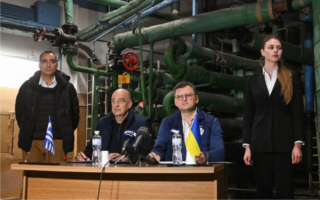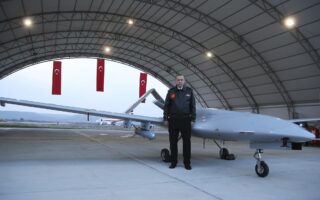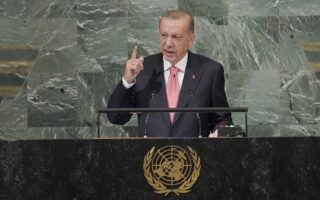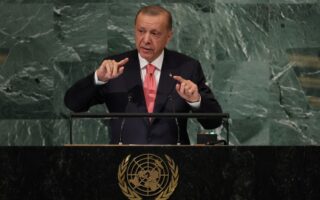Turkey: A useful but unreliable ally
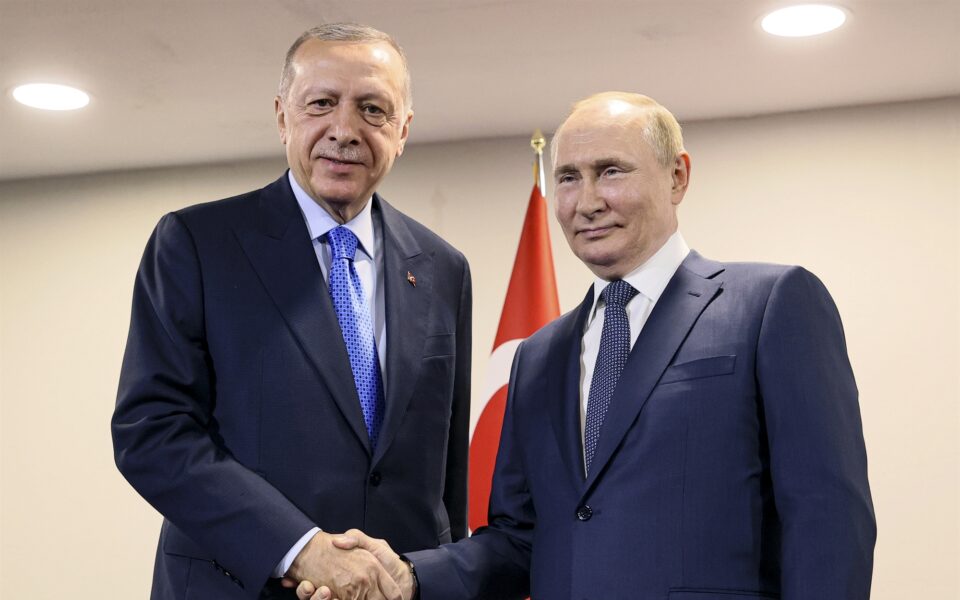
Russia’s invasion of Ukraine accelerated pre-existing trends in the international system and in Greek and Turkish foreign policy. Greece implicitly followed the line of the West, while Turkey pursued the usual tactic of playing both sides. These divergent approaches are consistent with the strategy the two countries have pursued historically, and even more so in recent years.
As regards Greece – apart from the moral aspect of the issue and the obvious rejection of any form of revisionism – adopting a clear stance, assisting Ukraine and putting the crucial port of Alexandroupoli at its allies’ disposal strengthened the country’s position in the Western camp and, indirectly, the external balance vis-a-vis the Turkish threat. The Greek position is strategically consistent and has been justified by the recent turn of events.
Turkey, on the other hand, came to rely more heavily on Russia as it sought strategic autonomy from the West and, finding itself having to deal with an almost impossible dilemma, did what it has done so often before: It tried to bypass the dilemma by engaging in a balancing act. While most analysts initially predicted that Turkey’s stance would eventually paint it into a corner, Ankara – with the help of various developments – handled the situation very deftly and has not only remained unscathed, but has bolstered its international standing with its role in the agreement for grain exports. Ankara has placed itself in the position of mediator between Moscow and the West. The way it strengthened its position vis-a-vis Russia and reversed the roles of dependence is also impressive.
This reversal of roles also stems from Russia’s geopolitical downfall. Moscow’s loss of status and influence was apparent at the Shanghai Cooperation Organization summit in September in Samarkand, but also at the recent G20 in Bali. A telling example, however, was how Turkish President Recep Tayyip Erdogan got Vladimir Putin “back on track” after Moscow announced it was pulling out of the grain deal in the wake of a successful Ukrainian assault on the Russian fleet at Sevastopol on October 29.
Relations between the two countries have made strides since 2015, when Turkish diplomats had to literally beg Moscow to lift an embargo on agricultural products. Before the war, Turkey relied on Russia for its energy security, agricultural exports and tourism. It needed Russia to exercise its desired policy in Syria, the Caucasus and even Libya. And just a few months ago, Turkey pulled back from another planned assault on northern Syria because Putin expressed his objections. The two countries had a relationship of mutual dependence, but the balance was in Russia’s favor.
Nobody wants to lose Turkey, but nobody really trusts it either. What it has gained from its tactics it has lost in credibility
Everything has changed now. Russia is pulling back and its economy depends on imports from Turkey. In 2021, Turkey was not even on the list of Russia’s top 10 trading partners. Now it is number three, lagging China and Belarus, and above Germany. Most importantly, Turkey is the only way Russia can circumvent sanctions and bring in vital imports of Western products, mostly of a technological nature. By not taking part in the sanctions, Turkey has reaped full economic and political benefits. Bilateral trade has increased 200% and the balance in the first nine months of 2022 showed a surplus of 28 billion euros for Turkey.
Turkey’s balancing act is the product of geography and history, and it has been doing it very well in recent years. It has developed and exploited every medium of power: military, soft power, the defense industry and information services. It condemned Russia’s attack on Ukraine but pointed the finger at the West as being to blame for the war. It ignores sanctions on Russia but supplies Ukraine with drones. It is constantly causing problems for NATO but has the second biggest military in the Alliance and participates willingly and sizably in its missions and operations. It maintains ties with Islamist organizations but provides intelligence to the United States, France, Israel etc. It weaponizes refugees but is also hosting the largest number of them on its territory. It uses hard power to exercise its aggressive and revisionist policy, but counterbalances it by spending enormous amounts of money on development partnerships and humanitarian aid ($8 billion in 2020 and $7.5 billion in 2021, most of which went to northern Syria).
Turkey is irritating, but it is useful. And that is why nobody wants to lose it.
Nobody wants to lose Turkey, but nobody really trusts it either. What it has gained from the above tactics it has lost in credibility. Its balancing act has become a perpetual state of being. When it leans too far to one side, it leaves itself exposed on the other. Its ability to project geopolitical clout is smaller than its ambitions. So too its crumbling economy, which relies on the West to a significant degree. NATO is still its pillar of safety, but also its arm of influence. No matter how much it may yearn for strategic autonomy, Turkey cannot disengage itself from the West.
Greece, on the other hand, has strengthened its position in the European Union and NATO, with its strategic agreements with France and the United States, with its ports at Souda and Alexandroupoli. The country’s security and stability is important to the Western security architecture. And that is why Erdogan will not be coming suddenly one night.
Alexandros Diakopoulos is a former military adviser to the Greek prime minister, a retired vice admiral of the Hellenic Navy and a consultant at the Hellenic Foundation for European and Foreign Policy (ELIAMEP).

